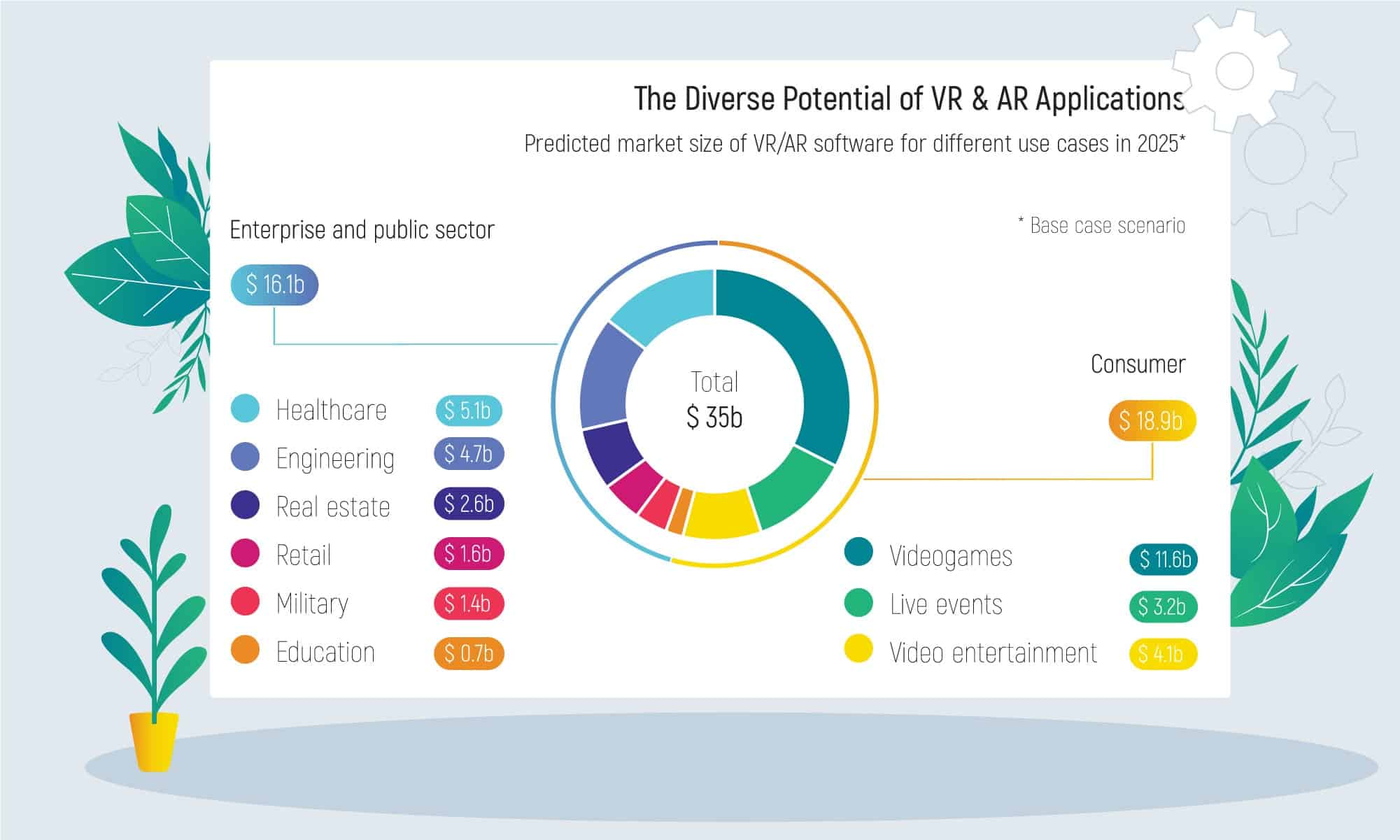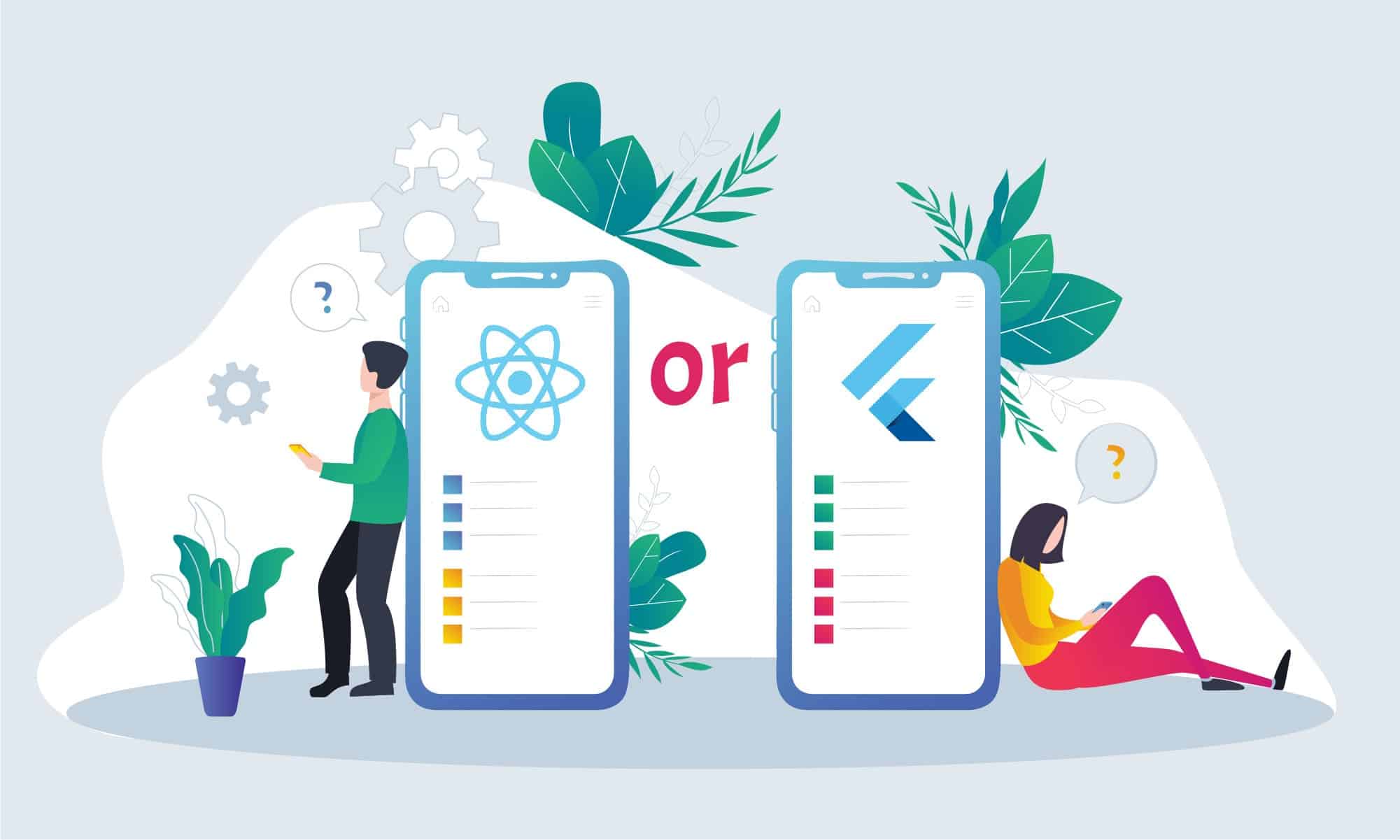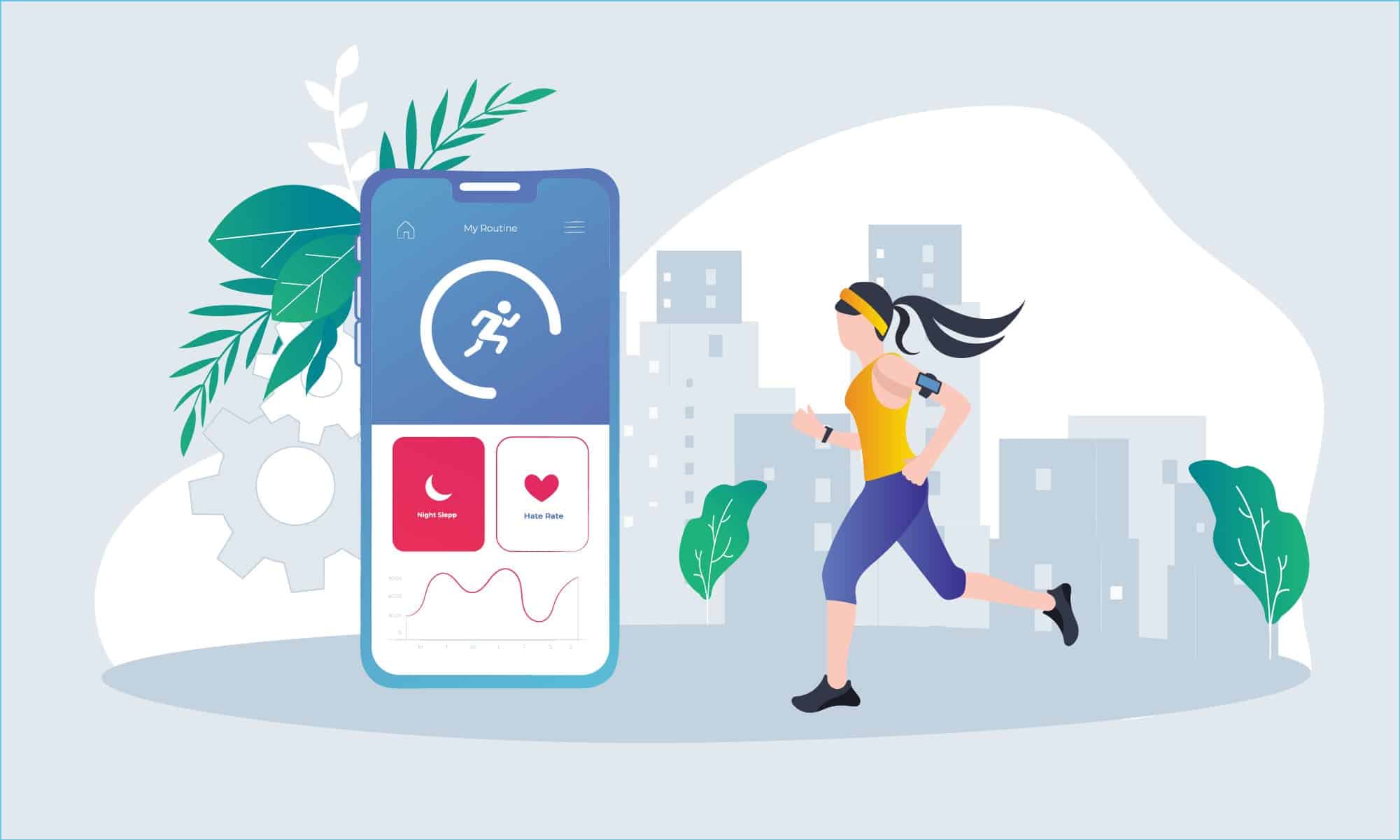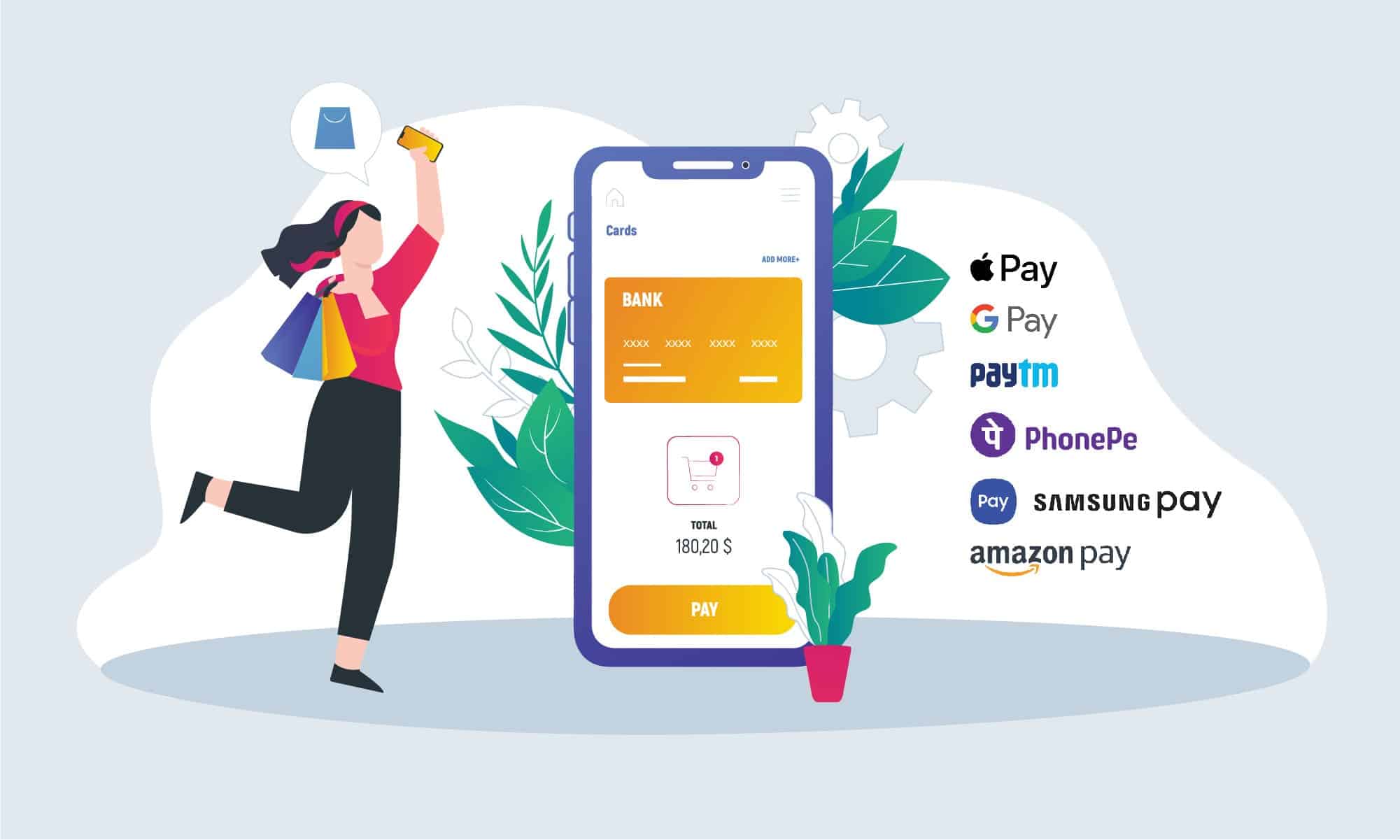Today, mobile app development is among the growing sectors in the global app market. The number of smartphone users has grown immensely these years and is roughly 7.4 billion worldwide. Needless to say, every mobile app development company is interested in releasing mobile apps for these tech-savvy users.
Besides that, businesses continue pushing boundaries with mobile app innovations and development. Up to 40% of small businesses have built a mobile app to offer their services, and 30% plan to develop a mobile app in the future. Mobile app development offers benefits for a business: going digital and competitive, showing a presence on the market, attracting more customers, etc.
So What Are Mobile Application Development Future Trends Going to Be?
Artificial intelligence
AI will play an important role and remains a mobile app development trend. We believe this technology can bring more personalized app experiences that respond to users’ needs.
Worldwide revenue from the AI market reached $125 billion last year. In the future, most AI apps will be developed using technologies such as machine learning algorithms and predictive analytics. This will allow mobile app developers to deliver a more personalized experience in their applications, and apps will be able to learn from a user’s previous actions and usage patterns allowing AI to implement necessary actions without being told to do so.
For instance, AI features that can be included in a mobile app are:
- Face detection
- Image recognition
- Speech recognition
- Predictive maintenance
- Text and image classification
We believe it’s not a limit and we will hear about new features soon
How much to hire an app developer? See the info here.
AR and VR in the Mobile App Industry
Augmented reality is a modified reality version created with the help of computer-generated elements on a real image. To make this possible AR apps use QR codes, geolocation data, or the object recognition feature. Virtual reality is a technology where users wear a headset and are fully engaged in computer-generated reality.
According to the report, the AR market size is predicted to increase to more than $198 billion by 2025. Known before as a player in the entertainment arena, AR/VR will expand its reach in other sectors as shown in the picture
Implementing AR and VR technologies into app design in any industry allows developers to create a more personalized and immersive user experience.
Learn how to make a video chat app! Inoxoft knows how!
Trends of VR & AR:
- AR-based virtual user manual
- Learning processes
- Virtual training simulations
- Exploration activities
- Live concerts
- Destination navigator
Augmented and Virtual reality became important tools during a year of pandemic. We believe these technologies will evolve more and make an impact on more industries.
Internet of Things (IoT)
IoT is an internet-connected network of globally-used digital devices that share and transfer all the needed data to users. The Internet of Things market reached $318 billion last year, worldwide. $161 billion of that estimate will come from software, like mobile apps. According to Statista, IoT is also predicted to be one of the top trending software development technologies with $1.6 trillion by 2025. Examples of IoT are virtual assistants such as Alexa and Google Assistant. They form an interactive bridge between the IoT progressive tools and the tech-savvy end-users of these life-changing devices. Also, IoT technology is seen in:
- smart homes (connected lights, smart refrigerator, smart kettle, doors, windows, thermostat, etc.)
- Learning processes
- wearable technologies (smart glass, activity trackers)
- traffic and waste management
- city safety monitoring
- water distribution (garden irrigation systems and others)
Cross-Platform Development
Depending on your business needs, the technology for your mobile app can differ. If you want to get a market-ready application quickly and there are not too many complex features to implement, then it’s better to prefer cross-platform application development. The future mobile apps trend will be developing on cross platforms which means the apps can be used on different mobile operating systems (iOS, Android, Windows, etc)
A survey on mobile operating systems states that Android is a leading mobile OS holding 74.6% of the market share, while iOS takes 24.82%. The most popular cross-platform mobile frameworks for building apps are React Native and Flutter. See iOS development services for more details.
Geolocation app development is the new future trend. Check out what it holds for startups!
React Native
React Native was released by the Facebook team in 2015. Today it is used for building cross-platform mobile applications with client-oriented UI/UX. It belongs to the technology stack for mobile app development. Advantages of React Native:
- Offers platform-specific UI that feels like a native
- Simple and seamless UX
- Allows cross-platform apps to run on the web too
- Optimal performance
- Live and hot reload function
- Cost and time-efficient
- Well-developed ecosystem
- Large, mature community
Some of the well-known cross-platform apps built with React Native: Instagram, Facebook, Pinterest.
Flutter
Flutter, developed by Google, is a mobile software development kit. Flutter allows one developer to build for iOS and Android simultaneously from a single code base. Implemented in dart language it is a perfectly fast and high performative tool. Advantages Of Flutter:
- Mobile UI-centered framework
- Reusable custom widgets
- Apt for animations of different complexity
- Fast code development time
- High performance
- Hot reload to view changes immediately
- Single code-base for iOS and Android
- Light learning curve
- Offers user experience similar to native
- Great documentation
- Rapidly growing community
Some of the cross-platform mobile apps built with Flutter are Reflectly, Google Ads app, Hamilton app.
Wearables
Wearable applications can be run on your devices and synchronized with an accessories such as smartwatches, smart jewelry, display devices, and body sensors. This technology is giving new opportunities for app developers. According to a survey, about one in three Americans stated that at some point they used a fitness tracker, smartwatch (34%), or have tracked their health statistics on application (32%).
What concerns the future, wearables will interact with mobile apps to provide a variety of services in areas such as fitness, healthcare, fashion different hobbies, and so on. That’s why we believe it will make an impact on the next generation of mobile application development strategies.
Mobile payments
As the economies of different countries are turning digital and society becomes cashless, the level of popularity of various payment methods (contactless payments, online payments, e-wallets), financial literacy, and people’s awareness of all kinds of fintech products have increased. Users prefer to make payments through the in-built mobile wallet for fast transactions.
By integrating payment methods with mobile wallets this process becomes convenient for both buyers and sellers. A customer can quickly pay for a product and a seller receives payment directly to the account, no matter what the distance between them. Payment apps help companies to improve customer service and allow them to save on fees and international transactions.
Categories Of Mobile Payment Apps are:
- Bank-based apps.
- Mobile OS systems such as Apple Pay, Google Pay, PhonePe, Amazon Pay, Paytm, and Samsung Pay.
- eCommerce Platforms (Shopify, EKM, BigCommerce)
Discover the opportunities you may get with our custom mobile app development services.
Focus on security
Data security and privacy protection is an important topic. Everyone wants to use applications where personal data is secured and an app doesn’t collect more information than it needs, especially when it comes to sensitive information in financial and medical applications. With the ongoing progress in fintech, cyberhackers are coming up with new methods of cyber fraud. Hence, security should not be underestimated. To ensure users’ data protection it is mandatory for software developers to control their implementations for mobile applications and adjust them to the requirements of legislation such as the Health Insurance Portability and Accountability Act (HIPAA) or General Data Protection Regulation (GDPR).
Check out the best healthcare app development companies in the USA
Final Words
The mobile app development market is growing rapidly. With the appearance of new smart devices, AI development, and VR/AR capacity the app industry has a chance to become the first in terms of investment. To stay competitive, not only big-tech companies but small businesses consider launching their own mobile applications that are customer-oriented and follow the latest market trends. Like, such an on-demand delivery app. Or, music synchronizer development.
If you want to launch a mobile application, and are wondering about the prices, use the App Cost Calculator which shows you a price depending on the operating system, architecture, and features you want to have. Use the mobile app metrics guide to understand what you should be measuring. We deliver cutting-edge mobility solutions for your unique business requirements.
Read next: What’s the cost of app maintenance?












